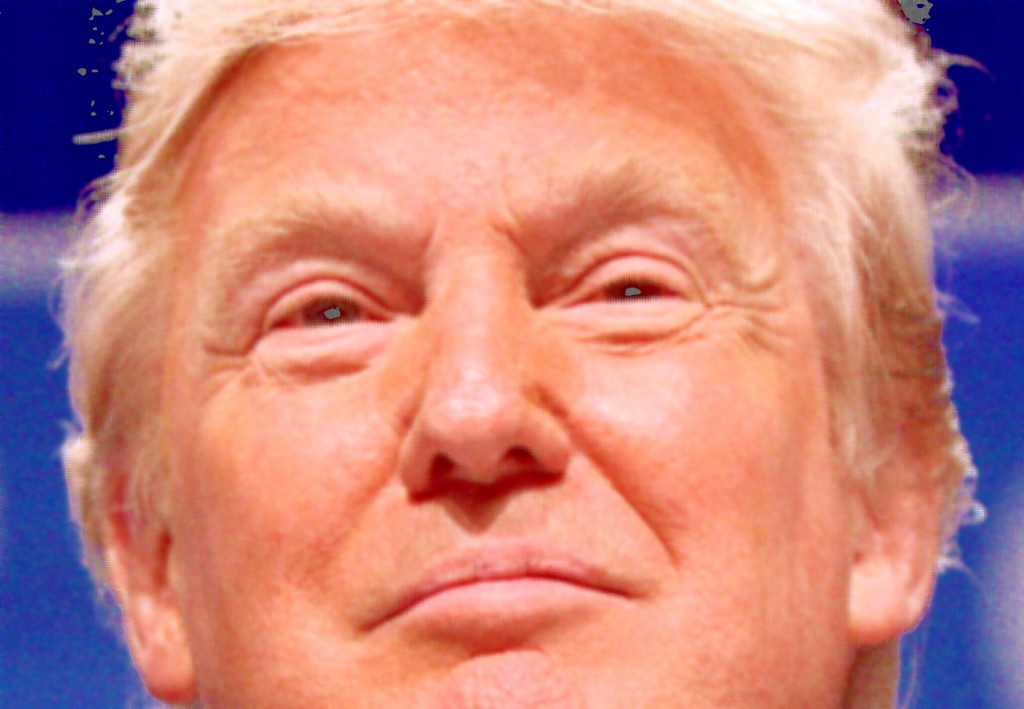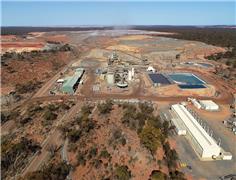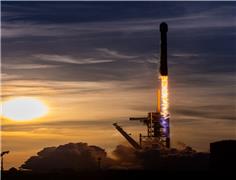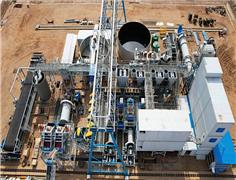- Write by:
-
Tuesday, July 16, 2019 - 10:47:31 AM
-
938 Visit
-
Print

Mining News Pro - Uranium is believed to be on its way to recovery after years of low prices triggered by weak demand and a global supply glut after US President Donald Trump declared over the weekend that yellow cake imports did not threaten to impair the country’s national security.
As a result, he said his administration won’t impose fresh quotas on foreign shipments of the metal.
Trump’s move goes against the advice of the US commerce department, which said the country show required utilities to procure 25% of uranium from domestic sources. According to official data, Washington currently imports 93% the nation commercial needs, up from 86% a decade ago.
Trump has also ordered a 90-day review of the entire nuclear supply chain to identify ways to revive and expand domestic production of the commodity.
The “232 resolution”, a reference to a section of the 1962 Trade Act that enables barriers or tariffs to be erected against imports regarded as a threat to national security, is expected to increase uranium market activity.
The sector has been suppressed since the 2011 Fukushima disaster, which led big buyers including Japan and Germany to shut nuclear plants and cancel plans to build new ones.
The market faced further pressure later, as a result of a subsequent supply glut, partly caused by world’s largest uranium producer, Kazakhstan to cut back output in 2017. Such decision was soon emulated by Canada’s Cameco (TSX:CCO) (NYSE:CCJ), North America’s top supplier.
Dropping a quota “is certainly the best outcome for the wider uranium industry and non-US uranium stocks,” BMO Metals analyst said in a note to investors. “However, a United States Nuclear Fuel Working Group has been set up which has 90 days to submit a report that reviews the entire domestic nuclear supply chain and is expected to provide recommendations for reviving and expanding domestic nuclear fuel production “if needed,” Colin Hamilton and Alexander Pearce noted.
“By not supporting quotas, President Trump is potentially avoiding a situation that would have seen higher cost uranium production being encouraged into a market that is already more than adequately supplied,” TD Securities analysts wrote.
Companies including Namibia-focused Bannerman Resources (ASX:BMN) believe Trump’s move will enhance activity from utilities, traders, producer-buyers and speculators during the remainder of 2019 as a result of the partial hiatus in a number of uranium market operations.
Cameco, in turn, has confirmed its intention to resume spot purchasing in order to meet term contract delivery obligations that it must fill after placing its flagship McArthur River mine, the world’s biggest uranium operation, on care and maintenance.
“As a long-term commercial producer, employer, supplier and investor in the US uranium and nuclear energy sectors, we want to see this industry succeed and grow,” said the company’s president and CEO, Tim Gitzel.
Uranium fund Yellow Cake, which has uranium holdings of nearly 10 million pounds for the period ended March 31, also expects activity in the market to pick up soon.
“We expect a more measured return to market activity in the near term and remain highly confident in the long-term price outlook for uranium, and therefore in the Yellow Cake investment model,” chief executive, Andre Liebenberg, said in a statement on Monday.
Currently, the global nuclear power industry gets nearly all of its uranium from sources such as Australia, Canada, Kazakhstan and Russia.
Short Link:
https://www.miningnews.ir/En/News/398107

A Russian arbitration court ruled on Monday that four units of Swiss commodities trader Glencore will pay more than 11.4 ...

Australian mining group Berkeley Energia will take its dispute with Spain to international arbitration after the country ...

Rio Tinto said on Wednesday it is teaming up with a global venture studio and start-up investor to back the development ...

Australia’s Westgold Resources said on Monday it had agreed to acquire Toronto-listed Karora Resources in a ...

Australian space exploration company Fleet Space Technologies has successfully deployed its next-generation Centauri-6 ...

Chinese coal prices are likely to keep falling until the start of the peak summer season, suppressing imports of the ...

Canadian miner Teck Resources has agreed to pay Korea Zinc $165 per metric ton, a three-year low, to turn its zinc ...

The Côté gold mine has poured its first doré bar as the project advances toward commercial production. The mine, located ...

NextSource Materials has submitted an application to build a downstream battery anode facility (BAF) to process graphite ...
No comments have been posted yet ...